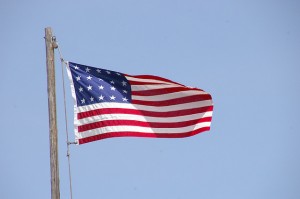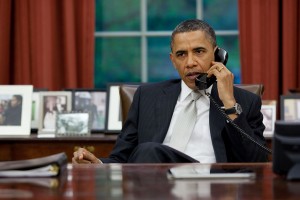
Flickr: Scott Catron
Can difficult-to-pronounce Arabic names be as American as apple pie?
The Washington Post series about life for Muslim-Americans started off with the profile of a Palestinian-American who ditched his “Americanized” name for his legal one. His decision made me think about my own struggle in reclaiming my given name.
Fawaz Ismail grew up in Texas where he asked everyone to call him Tony, a name that “put people at ease.” He remained Tony after he moved to Northern Virginia, where he helped expand his family’s flag business. But Ismail dropped his nickname after the backlash against Muslims in the wake of the Sept. 11 attacks.
Now, a decade later, his name is a daily message to his fellow Americans: They must deal with him for who he is — a Muslim who loves his country and proudly sells its banner.
“A lot of people use a nickname to make it easier for Americans to pronounce,” he says, “but now, I don’t care. They’re going to have to pronounce my name. It’s not that hard — Fah-wahz.”
Many immigrants and second-generation Americans go by nicknames rather than their legal names for a number of reasons. I’m one such example. I grew up up in a small, rural and mostly-white Maryland town, and my parents decided I should go by the nickname Ele rather than my real, very Persian name: Elahe, the Arabic word for goddess (pronounced Eh-la-heh). They went by “Americanized” names themselves in an effort to make life easier, to assimilate as quickly as possible in a foreign land. And for 21 years, I was Ele (pronounced Elie). It wasn’t until after college that I decided to make the switch to my real name, both in my personal and professional worlds.
My decision was like Ismail’s; why must I accommodate or change my identity to convenience others or make them feel more comfortable?



